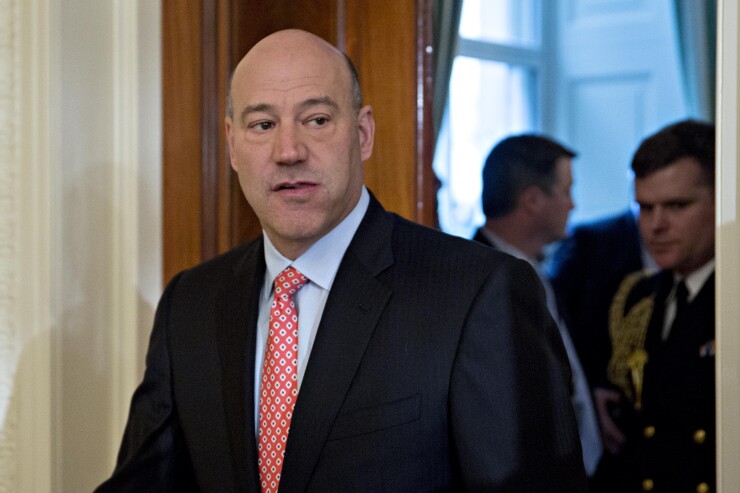The Trump administration may try to block potential plans by high-tax states including New York and California to shield residents from state and local tax break changes, according to White House economic adviser Gary Cohn.
“I understand what they’re trying to do for their cities and their states and their taxpayers,” said Cohn, director of the National Economic Council, during a Bloomberg Television interview Friday. “We at the federal government still have to collect revenue.”
The tax bill signed by President Donald Trump on Dec. 22 sets a new $10,000 limit on state and local tax deductions for federal income taxes starting on Jan. 1. New York Governor Andrew Cuomo earlier this week said that the new cap was an act of “economic civil war,” and promised to fight back by suing the federal government and by changing the state’s tax code to shelter residents from the loss.

One of the options under consideration is swapping the state income tax for a payroll tax paid by employers, which would still be fully deductible.
In California, Senate President Pro Tem Kevin de León plans legislation that would allow residents to donate to a state entity called the California Excellence Fund in lieu of paying taxes—a move intended to sidestep the federal cap.
Proposals from New York and California are “interesting, but unlikely to succeed for both legal and practical reasons,” Jared Walczak, a senior policy analyst at the Tax Foundation, said in a report Friday. “If states are genuinely concerned about the effects of their tax codes absent an uncapped state and local tax deduction, they should consider revisiting their tax rates rather than devising increasingly convoluted and legally suspect workarounds.”
Overall, the tax cuts that Congress approved are estimated to reduce federal revenue by more than $1 trillion over the next decade, after accounting for macroeconomic effects, according to the Joint Committee on Taxation, Congress’s official scorekeeper. If states devise workarounds for the $10,000 cap on state and local tax deductions, that figure could grow.
“We’ll deal with it when we have to,” Cohn said. “Hopefully we’ll grow the economy fast enough that the tax revenue will exceed everyone’s expectation.”





